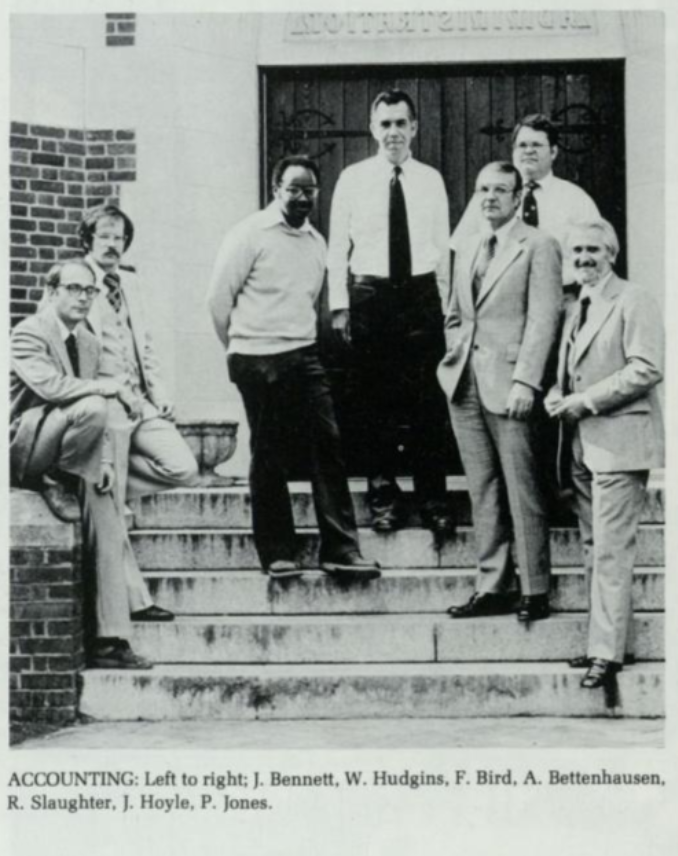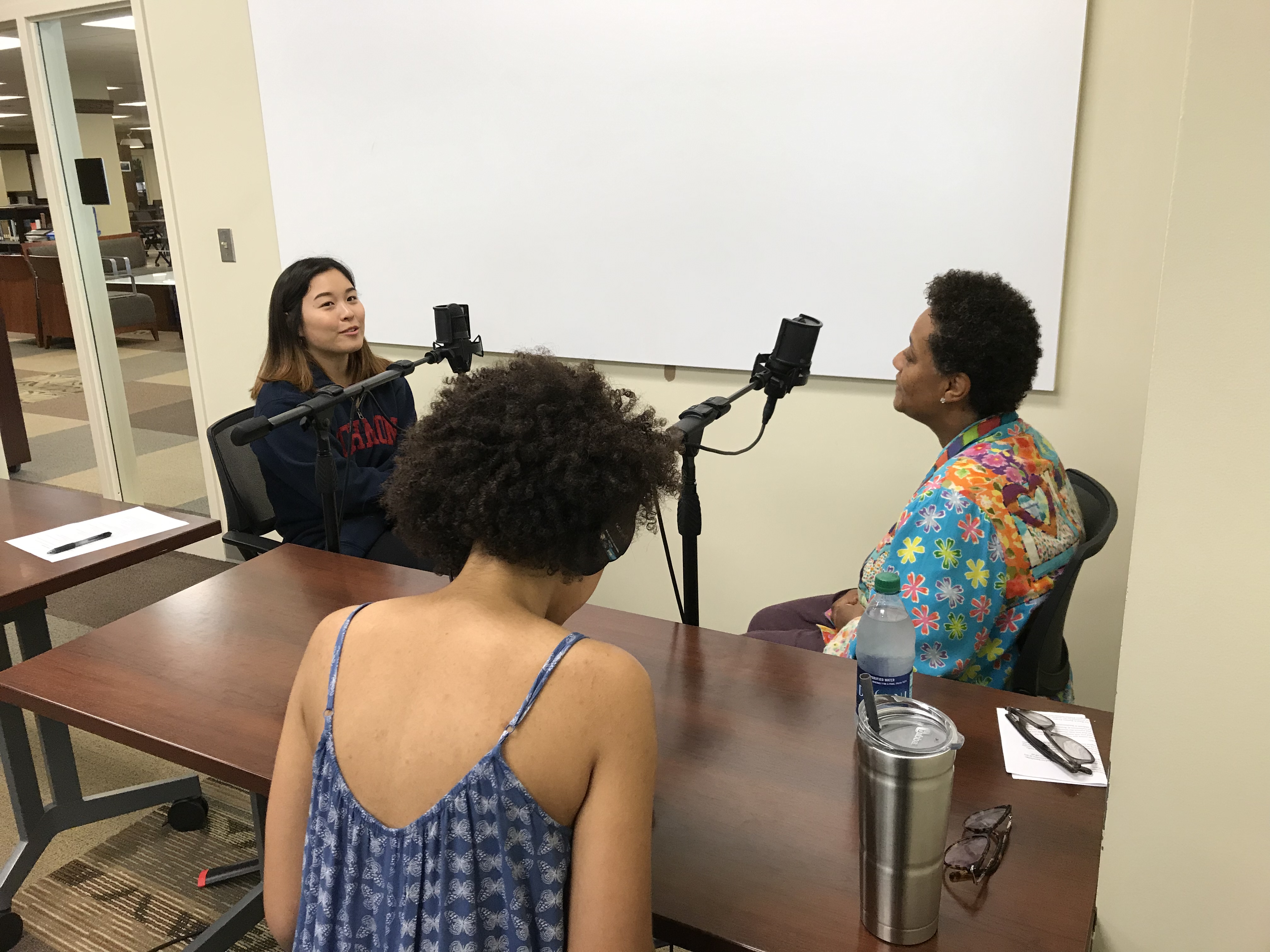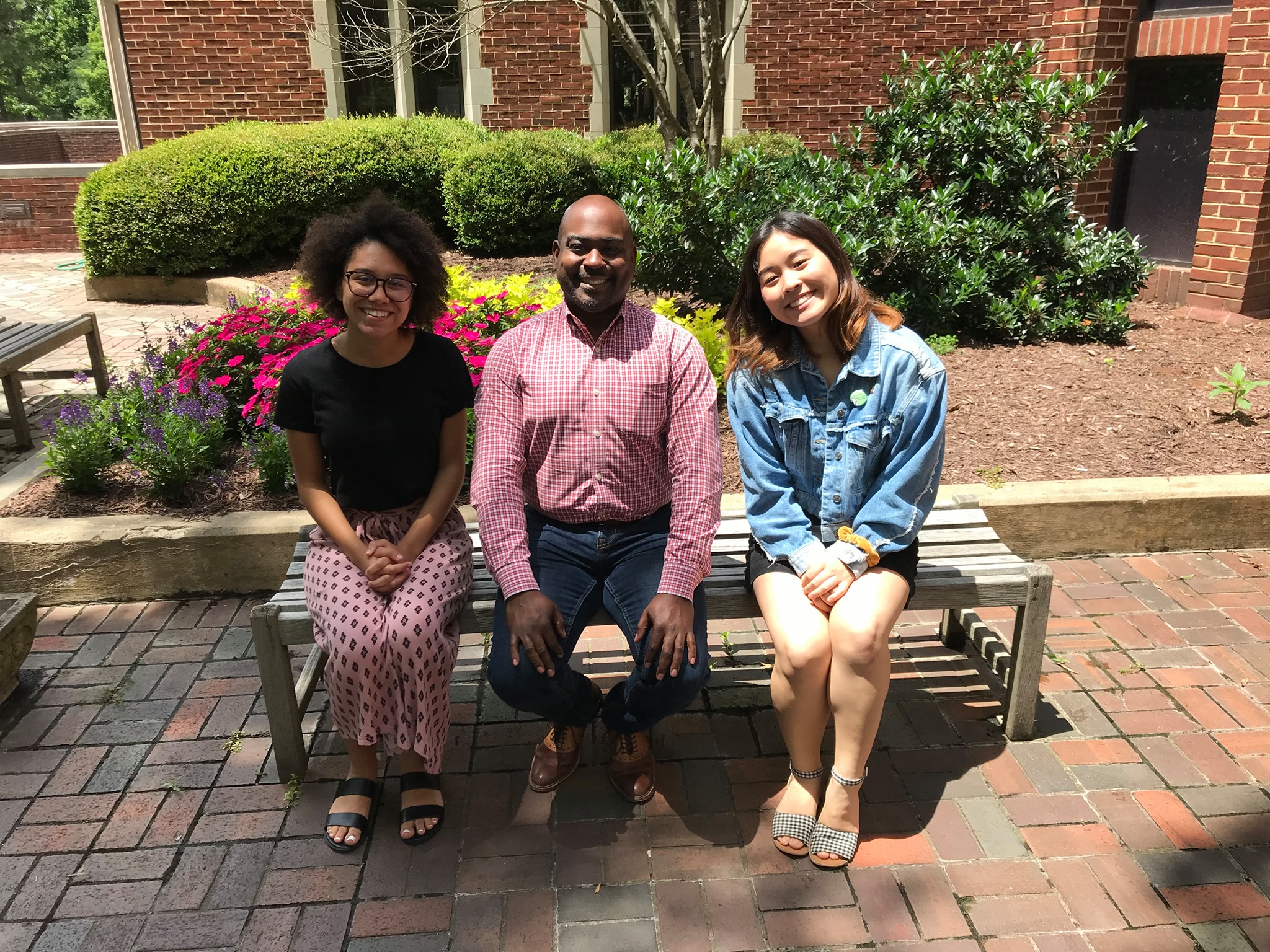by Cole Richard
Cole Richard is a junior from Orlando, Florida double majoring in English and Italian Studies and minoring in Linguistics. This is his first summer working on the Race & Racism project. He is also a resident assistant, DJ at the campus radio station, and student worker at the music library.

When I was assigned my interview subject, Professor Raymond Slaughter, I began my research through the two avenues I thought would be most fruitful: The Race & Racism Project website and the Collegian archives. Unfortunately, relevant search results were rather paltry: One photograph from the project website and a handful of mentions in the Collegian. Although I was thankful to find anything at all, it seemed I had little to write interview questions from. Most of all, I was missing biographical information similar to what Team Oral History had been provided in preparation for our mock interview; I had no idea where Professor Slaughter had grown up or gone to school before coming to work at UR in 1977. Simply searching on Google (using terms such as “Raymond Slaughter,” “Ray Slaughter,” “Professor Slaughter,” “Dr. Slaughter,” and “Richmond,” or “University of Richmond,” etc.) was not especially helpful either. Although my searches yielded over two million results, only a few pertained to the Raymond Slaughter I would be interviewing, and these consisted mostly of outdated UR course catalogs or Whitepages search results that contained nothing more than a matching name. Lacking a profile of biographical information, I decided to put a pin in this and instead focus on considering the ways a faculty experience differs from that of a student, and how the interview and questions asked must differ to accommodate this.


